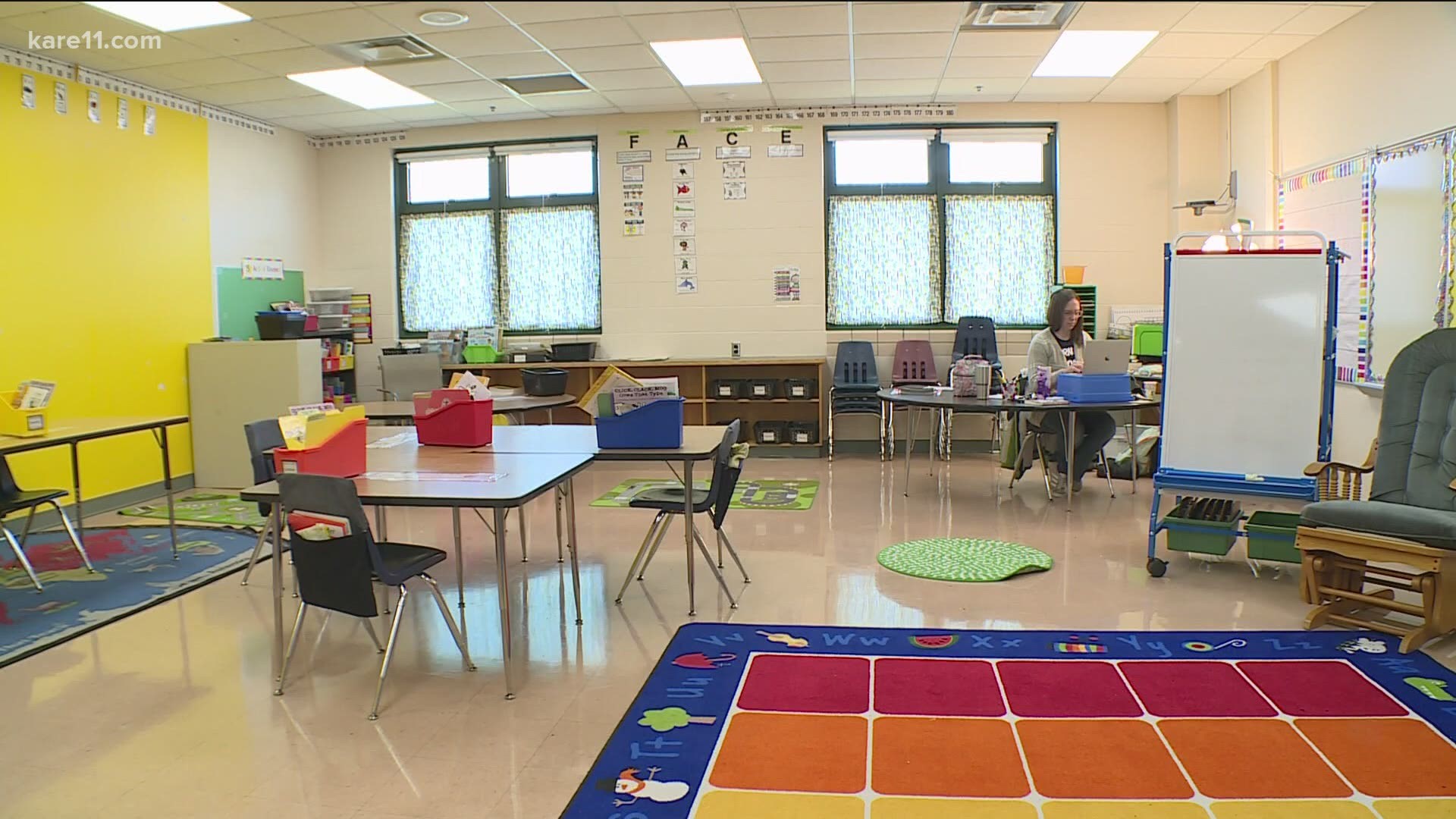MINNEAPOLIS — Minneapolis Public Schools announced this week the district will start in-person hybrid learning in mid-November for students who need the most support. But already, some district schools have embarked on a pilot program as a test run to provide insight to what a part-time student return may look like.
An estimated 250 students across seven MPS schools are currently participating in a new in-person model, specifically focused on K-3 students who face health and safety risks or are in danger of falling behind. Students selected are those with special needs, new English learners, children experiencing homelessness, and those who have suffered with significant learning loss or a widening opportunity gap.
At Lucy Craft Laney at Cleveland Park Community School in north Minneapolis, students come for two hours, just two afternoons a week. Fewer than 50 students are in the building during the afternoon program.
Principal Lisa Pawelak said Lucy Laney was considered for the pilot program because of factors like student test scores, an absence of virtual tutoring available to students, along with student demographics as a racially isolated, high poverty school. She admits there is no playbook or easy answer as her community grapples with the dangers of COVID-19 and a destabilized neighborhood.
“I struggle with the reality that so many our families are facing. COVID-19 is real, it’s a big deal. We are staying home to stay safe from it, but our neighborhoods aren’t safe. Our children are dying anyway. Our teens are dying, and our elementary kids are watching this happen and hearing the gunshots. I believe we have the space and safety protocols in place and the staff able and ready to make it work,” said Pawelak.
Staff members participating have opted into the trial run. Kindergarten teacher Phebe Carr teaches just six students at a time, who wear masks and face shields. While the gatherings are small and socially distanced, she’s already seeing big changes.
“The kids that I have, none have been in school before, so riding the bus was amazing, coming into the school was new and exciting. The growth has been huge, even just writing their name. One of the kids this week, said ‘I did it! I wrote my name!’” said Carr. “Sometimes they are in tears over how to write the number ‘5.’ But when we are able to do it together, they are growing and building confidence.”
Other teachers see the pilot program offer an immediate improvement in students’ mental health. Second grade teacher Tiffany Payne is part of a ‘looping’ model, where she is teaching the same class for a second year in a row. She can see how distance learning has taken a toll on many of her students since they were together last spring.
“My kids have had a really hard time, I have given a lot of FaceTime calls, Google Meet calls with pep talks. It’s a lot of students I never had to give a second thought to in class. It’s been really hard mentally and emotionally for a lot of them. But I think it was wise of the district to wait and err on the side of caution, it’s a sacrifice that will be worth it in the long run when we are together again,” said Payne.
Beginning November 9, MPS will slowly move to “Phase 3: Hybrid Learning with In-Person and In-School Supports” on a school-by-school basis. Students will be identified by teachers and school staff for in-person learning at school. Families can still opt for distance learning as phases change. MPS stressed it will follow the advice of local and state health experts, stating ‘since the beginning of the pandemic, we will only move toward greater in-person learning as it is safe to do so.’
For now, Principal Pawelak is focused on precaution, providing her staff and students with support and safety protocols, while looking to the optimism of the kids who walk in the door with an excitement that can’t be concealed—even under a mask.
“A problem has a solution, and a dilemma has no good answer. Everything is a dilemma. Should schools be opened, should schools be closed? My big mantra is turn it for good. Let’s take whatever we have and make it as good as it can possibly be, not to lose our love for school, not lose the joy that comes from being together,” said Pawelak.

